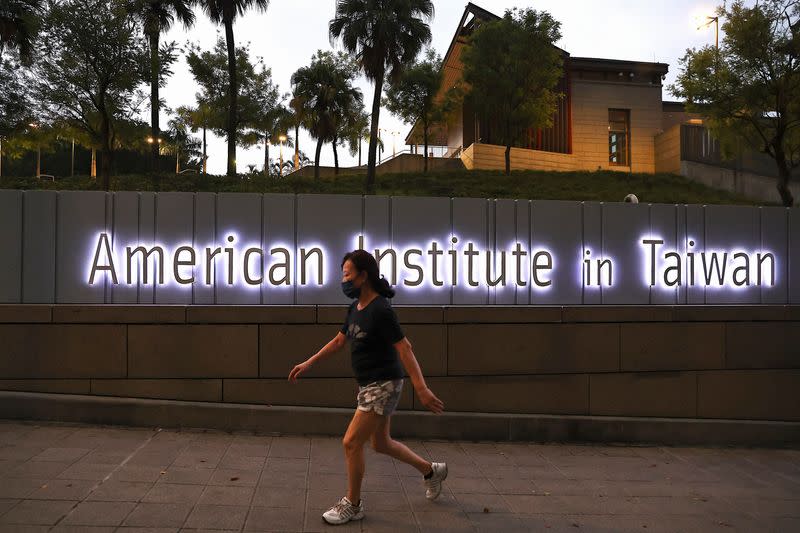U.S. taps new chair for institute to guide ties with Taiwan

By Michael Martina and David Brunnstrom
WASHINGTON (Reuters) -A former Biden administration China policy official will guide U.S. ties with Taiwan as the U.S.-based head of the American Institute in Taiwan (AIT), the institute said on Wednesday, a move aimed a deepening ties with the Chinese-claimed island as U.S.-China relations hit their lowest point in decades.
Laura Rosenberger will take over as AIT chairperson upon the March 20 retirement of James Moriarty, who had been in the role since 2016, AIT said in a statement.
"As AIT Chair, Ms. Rosenberger will participate in policy-level discussions on Taiwan and represent the Administration in visits to Taiwan and in meetings with Taiwan representatives in the United States," it said.
Set up after the United States switched diplomatic recognition from Taipei to Beijing in 1979, the U.S. government-run non-profit carries out unofficial relations with democratic Taiwan, which China has vowed to bring under its control, by force if necessary. AIT's remit includes operating the United States' de facto embassy in Taipei.
Four people familiar with the Biden administration's thinking said Rosenberger, who is stepping down after two years as senior director for China and Taiwan at the National Security Council, will take a more hands-on approach to unofficial ties with Taiwan than her immediate two predecessors.
A major focus of her job, the people said, will be to maintain communication channels with candidates in Taiwan's presidential election in early 2024, a potentially fraught moment between Taipei and Beijing.
Military tensions across the Taiwan Strait soared last year when then-U.S. House of Representatives Speaker Nancy Pelosi visited the island, angering the Chinese government. Risks are high in the upcoming election cycle, especially if current House Speaker Kevin McCarthy follows through on his stated desire to visit the island, possibly later this year.
Taiwan Vice President William Lai of the Democratic Progressive Party (DPP), who has riled Beijing with his staunch support for the island's sovereignty, is widely expected to run for the presidency. President Tsai Ing-wen, from the same party, cannot run again due to constitutional term limits.
The main opposition party, the Kuomintang, or KMT, traditionally favors close ties with China but strongly denies being pro-Beijing.
"There is a deliberate strategy here," one source said of Rosenberger's appointment, but added: "It's not about tilting or favoring anyone (in the election), but about communicating how we think about things."
BUILDING TAIWAN'S DEFENSES
Another top priority for Rosenberger, according to several sources, will be engaging Taiwan's Ministry of National Defense to ease resistance to the U.S. government's push for the island to boosts its asymmetric defense strategy focused on employing mines and anti-aircraft and anti-ship missiles, rather than heavy tanks and fighter aircraft.
Military analysts warn that planes and tanks could be destroyed in a first attack by China.
"The more that can be done, the quicker that can be done, the better it is for Taiwan's own abilities to defend itself, and that is of course a very high priority in terms of U.S. policy," the source said.
Rosenberger will also work to resolve bottlenecks to get billions of dollars in Taiwan's backlogged arms purchases from the United States delivered, the sources said.
Douglas Paal, a former director of AIT in Taipei, said Rosenberger would come into the job with a close working relationship with her successor at the NSC, Sarah Beran, as well as Taiwan's top representative in Washington, Hsiao Bi-khim.
Putting a Washington-based political appointee in the position would be "a different model from the past 17 years," said Bonnie Glaser, an Asia expert at the German Marshall Fund of the United States.
"I expect Laura will redefine the role and be a more proactive player in policy than her predecessors," Glaser said.
(Reporting by Michael Martina and David Brunnstrom; Editing by Susan Heavey, Chizu Nomiyama, Don Durfee and Daniel Wallis)

